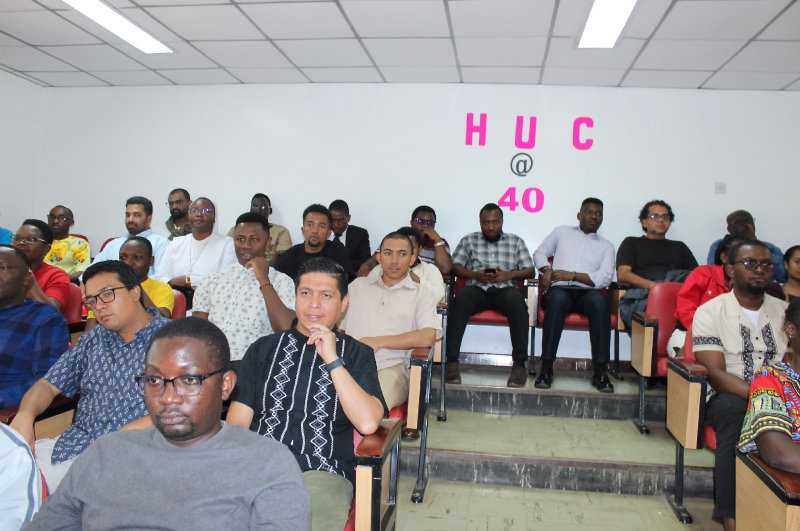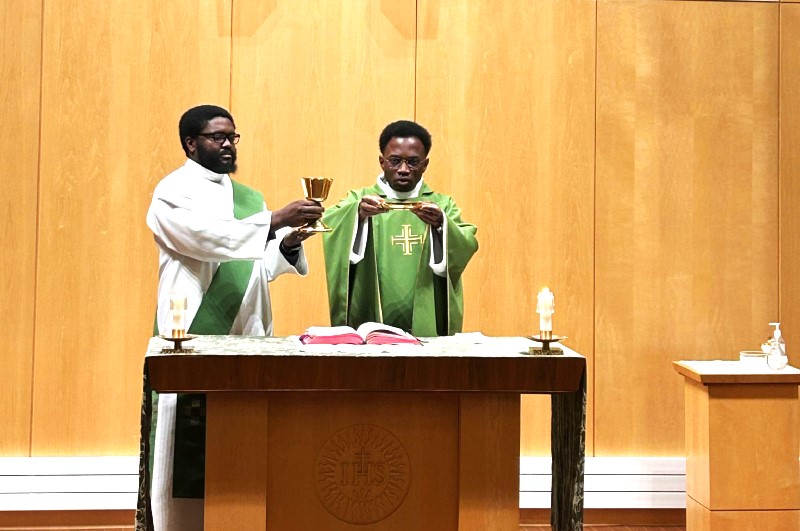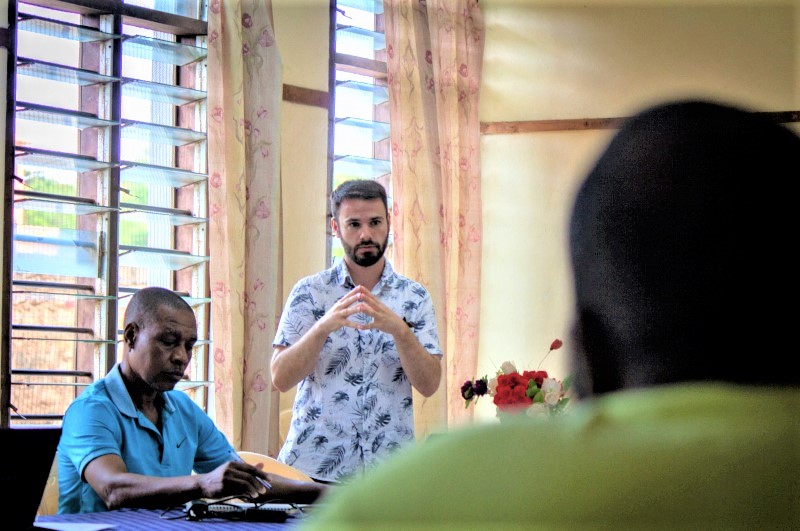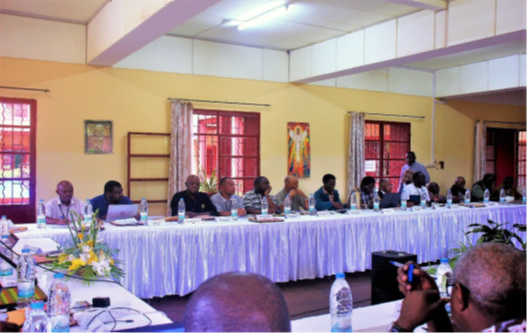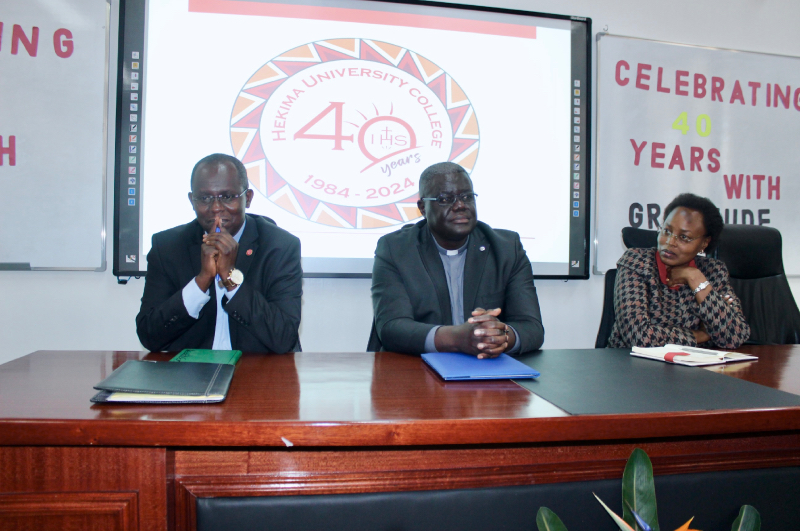

With the August 19th declaration that Hekima University College’s 40th Academic Year 2023-2024 had begun, the JCAM president Fr. José Minaku, SJ, inaugurated Hekima’s Jubilee celebrations.
“Life begins at 40” goes a popular saying, in its 40 years, however, Hekima University College already boasts alumni who are famous theologians, academicians, and leaders in various capacities.
From a small institution that began in 1984 consisting of a handful Jesuits and a few others from other religious congregations, Hekima University College (HUC) holds strong to its vision as a centre for excellent formation, research, and scholarship, committed to offering a high-quality integral and contextualised education founded on the finest traditions of the Jesuit humanistic heritage. This is one reason why fifteen other religious congregations currently have their men and women receiving formation at Hekima.
The principal of HUC, Fr. Marcel Uwineza, SJ, noted in his inaugural welcome speech that the shifting demographics Christianity globally indicate that its future is in the global south. Fr. Uwineza sees this as a divine kairos (moment of challenge and opportunity) for HUC. “Our desire in collaboration with faculty, staff, students, our trustees and university council, is to make HUC a centre of excellence in theology and peace studies. Sooner or later, more and more schools of theology in the global north may close, and perhaps HUC will become the best alternative for the English speaking world,” he observed.
While Fr. Uwineza elaborated on the Biblical symbolic meanings of figure 40 and made inferences to it with regards to HUC turning 40, the JCAM president Fr. Minaku noted that the number 40 was ambivalent, depending on whether you are entering or leaving the 40-year cycle. “Entering the cycle of 40 years means that you are entering a period of mortification and purification with the risk of losing an entire generation!” Rev. Minaku said (referring to the forty days of wilderness wandering in the story of the Israelites), adding that HUC attaining the age of 40 is a milestone given the significant transformation and renovations that are currently being undertaken.
The Journey to 40
The theme chosen for the 40th Anniversary is “Going Further: Moving from Better to Best!”. Fr. Uwineza his speech noted that the last four decades have been a time of preparation and while the institution celebrates its strengths, it endeavours to improve on the areas of weaknesses, thus moving from better to best. He revealed that out of 20 members of the faculty in the Jesuit School of Theology, sixteen are former students of HUC.
The JCAM president, who is also the chair of the Hekima Board of Trustees, said that it’s time to continue exploring what we can bring to the world that is facing the same old challenges, but with renewed and sustained enthusiasm. He noted that the world is witnessing a regression in peace, in respect of human dignity, and in the value of life, therefore Hekima should not forget what her founding father, Fr. Pedro Arrupe, emphasised; being witnesses and becoming prophets! “It is our purpose to draw from our rich history in our theological pursuit by thus providing prophetic hope in a broken world,” Rev. Minaku said.
What the celebrations entail
According to Fr. George Macharia, SJ, the registrar of HUC who is steering the yearlong celebrations, the conceptualisation for the whole year which took into consideration the past, the present, and the future, entails a number of projects and activities, some of which have already begun. “Going forward we would like to improve both the physical and the virtual infrastructure at HUC. We plan to expand our programs, increase the number of students, expand our Open Distance and e-Learning (ODEL) as well as increase our networking,” Fr. Macharia explained.
The HUC principal Fr. Uwineza confirmed that most of the buildings at the institution have been renovated and equipped with modern technology and, in keeping with the spirit of Laudato Si, more than 250 palm trees have been planted around the two campuses. He promised that more work would be done soon, especially at the Tarimo Student Commons, located on the undergraduate Campus. “We are working hard to find an endowed chair that will strengthen scholarship in theology and peace studies. We are looking forward to hosting major conferences and lectures and we have invited seasoned professors who will mentor our junior faculty who are working on new publications,” Fr. Uwineza added, as he shared part of the activities lined up for the celebrations.
Finally, what distinguishes an academic institution of higher learning from other academic institutions is research and publications. In Fr. In Uwineza's words, HUC will continue encouraging research and publications by the faculty and students and will ensure support.
Responding to the challenges of Africa while remaining a globally relevant tertiary institution
Fr. Ludovic Lado, SJ, the director of Centre d’Etude et de Formation pour le Développement (CEFOD) in N’Djamena, Chad, the keynote speaker at the inaugural ceremony, challenged HUC to produce in the next decade a few more Moses like figures, to challenge the Pharaohs of our times, and a few more Jesus like figures to confront present-day Herods and Pilates. He said that a school of theology like Hekima University College cannot limit itself to being a factory of priests or mass celebrants. He sees the relationship between the Faculty of Theology and HIPSIR (Hekima Institute of Peace Studies and International Relations) as an ideal opportunity for collaboration that opens theology up to the major concerns of our time, in particular the many forms of violence that are undermining peace in our families, within and between our countries, and in the world.
Fr. Lado also pointed out that a theology that is only speculation about God and does not lead to a praxis of liberation is dubious; theology must become a preparation for the praxis of liberation. What is at stake in theology and peace studies for the future of Africa is whether women and men of our time are willing to respond to the call to go and confront Pharaoh, to welcome the incarnation of the divine in them, and to risk their lives for the salvation of humanity. “So to juxtapose theology and peace studies in the same institution as is the case at HUC is not an unholy marriage, since ultimately, as I have just insinuated, theology must find its fulfilment in a praxis of liberation. For this reason, there should be more social sciences in theological formation to help understand how oppression operates in our societies and prepare the clergy and theologians of tomorrow for liberation praxis. God makes himself manifest to human beings not only through his works of creation but also through his works of liberation,” Fr. Lado said.
As HUC celebrates 40 years of the Jesuit School of Theology, its postgraduate program on peace studies and international relations is 20 years old. Dr. Lado challenged Hekima to ensure that Peace Studies and international relations will not be reduced to a set of recipes and tools for reconciling people and communities in situations of war, violence, and conflicts. “If it were that simple, there would be no more talk of war in Sudan, Ethiopia, Ukraine, Russia, Eastern DRC, Western Cameroon, Libya, and, many others,” Dr. Lado pointed out, adding that there is a need to get back to the fundamental question as to why men and women created in the image of God are violent?
This he said is where theological concepts such as original sin, and the threefold redemption, sin, and grace, make sense. Human beings are violent, he suggested, due to the fact that they are wounded deep within themselves and are in need of healing and salvation; violence is more of a cry of distress than necessarily a manifestation of wickedness.
Related Articles
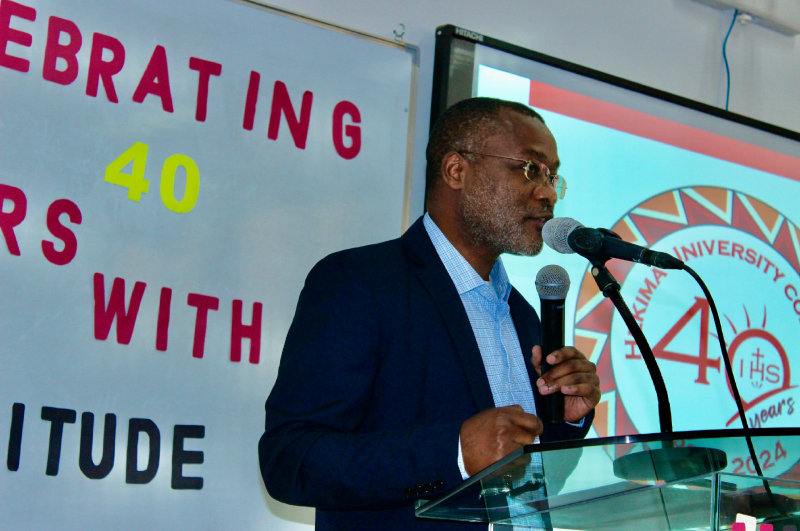
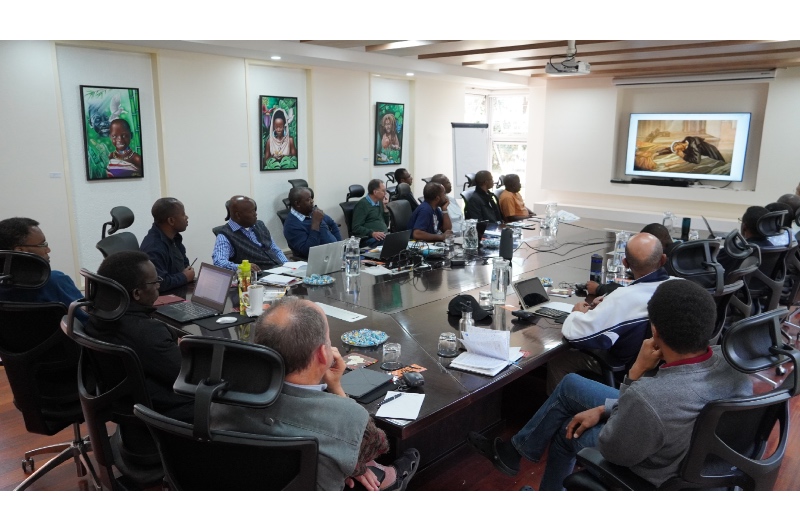
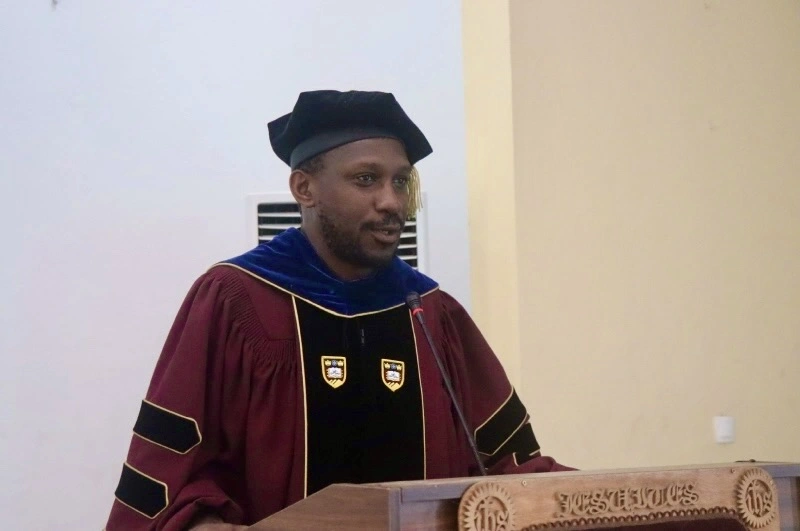


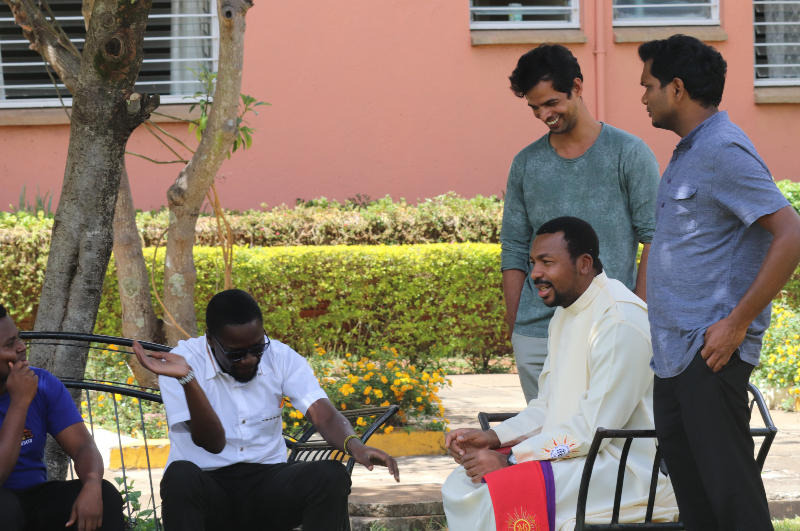
Select Payment Method
Pay by bank transfer
If you wish to make a donation by direct bank transfer please contact Fr Paul Hamill SJ treasurer@jesuits.africa. Fr Paul will get in touch with you about the best method of transfer for you and share account details with you. Donations can be one-off gifts or of any frequency; for example, you might wish to become a regular monthly donor of small amounts; that sort of reliable income can allow for very welcome forward planning in the development of the Society’s works in Africa and Madagascar.
Often it is easier to send a donation to an office within your own country and Fr Paul can advise on how that might be done. In some countries this kind of giving can also be recognised for tax relief and the necessary receipts will be issued.


